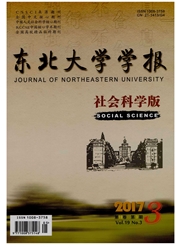

 中文摘要:
中文摘要:
基于行为金融理论,选取2006--2008年沪、深两市上市公司相关数据,在控制其他可能影响上市公司投资水平的因素后,以年换手率作为投资者过度自信的代理变量,实证检验了投资者过度自信对上市公司投资行为的影响。结果显示,投资者过度自信与上市公司投资水平间存在显著的正相关关系,为投资者过度自信影响上市公司投资决策假说提供了经验证据。以上市公司年度托宾Q回归的残差衡量股票错误定价,从非均衡定价的角度直接衡量投资者过度自信,进一步对上述结果进行了稳健性检验,得到相似的结果。因此,如何有效减少投资者过度自信导致的上市公司非效率投资决策,应成为未来引导企业投资政策关注的重点。
 英文摘要:
英文摘要:
Based on the behavioral finance theory, the data of China's listed companies in both Shanghai and Shenzhen Stock Markets from 2006 to 2008 is taken to check up the influence of investors' overconfidence on the investment behavior of the listed companies empirically, where the annual turnover rate is taken as the proxy variable of investors' overconfidence under the conditions that other possible influencing factors on those companies' investment level are controlled. The results revealed that there is a significantly positive correlation between investors' overconfidence and listed companies' investment level, thus providing an empirical evidence for the hypothesis that the investors' overconfidence affects the investment decision of listed companies. In addition, the residuals resulting from the listed companies annual Tobin's Q regression are used to measure the stock mis-pricing and the investors' overconfidence is directly defined and measured from the perspective of non-equilibrium pricing so as to carry out a robustness test to check further the above-mentioned results, and the similar results are given.
 同期刊论文项目
同期刊论文项目
 同项目期刊论文
同项目期刊论文
 期刊信息
期刊信息
